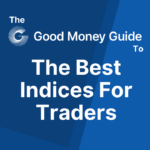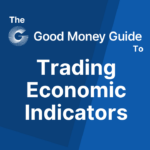We talk endlessly about CFD (contracts for difference) scams and how to avoid them. We’ve done surveys on what people do when they spot fake investment ads online, written guides about how to avoid getting hoodwinked by commission-driven advisory brokers, explained that trading educators are best avoided, yet still investors are being lured into offshore CFD scams.
Thankfully the FCA is now stepping up its game and banning Cypriot based brokers from passporting into the UK FCA register.
One of the major sources of these CFD scams is unregulated social media advertising. Even though Facebook, Twitter, Google have banned advertising CFDs for non-regulated brokers. Scam CFD adverts are still slipping through the net.
Is CFD trading a scam?
The problem is not with CFDs, which are a legitimate investment and trading product. They work on the basis that you trade on leverage and your profit and loss is based on the difference between the opening and closing price you trade at. CFDs provide a mechanism for high risk investing on liquid assets such as forex, indices, stocks, commodities and interest rates.
They have been around for decades, but have gradually become more readily available. When I first started as a CFD broker at Man Financial (then a FTSE 100 company) I sat across the aisle from GNI headed by Phil Adler, (who pioneered online CFDs through their platform GNI Touch) CFDs were only available to clients who had a net worth (excluding principal residence of at least £100,000, and had significant experience with high-risk investments.
In effect, back then, CFDs were self-regulated. In that it took weeks to open an account, you had to fill in paper forms, post ID, provide financial statements and also have a minimum account balance of £10,000 before you would be allocated an account number.
There was also no social media so there were no Instagram investment scams of posers with Gucci trainers, Lamborghini’s claiming to trade by the pool for two hours a day – the so-called traders’ lifestyle. The FCA even joined Instagram to try and highlight how these scams work.
But now, pretty much anyone can open an account and trade CFDs within a few minutes. AML checks are done when you want to withdraw funds (leading to loads of complaints about clients claiming brokers are refusing to send their money back). Which means that anyone can trade CFDs. But just because everyone can trade CFDs it doesn’t mean everyone should.
We maintain a comparison of UK regulated CFD brokers, client reviews and CEO interviews so you can make a more informed decision about which CFD trading platform to use.
Ever since ESMA (the European equivalent of the FCA) told all FCA regulated brokers that they to display the percentage of clients who lose money trading CFDs with them on their websites and marketing material it’s become clearer than ever that high-risk investment products are not for everyone. But, then again, the quicker you try and make money, you have to accept that you can lose it just as quickly.
So the product is high-risk, yes, but it is a self-directed, execution-only product. The FCA rules say that you cannot advise clients what to invest in, even if it’s implied advice. Which means that clients make their own investment decisions. If they lose money they are the ones that have pulled the trigger.
What are CFD scams?
What happens with CFD scams is brokers in a boiler room, cold call clients and use high-pressure sales tactics to get them to trade more.
You can read more on specific types of scams here:
How do CFD scams work?
In some cases to generate more commission on each trade for them. These were the sorts of scams being run in films like Wolf of Wall Street and Boiler Room.
In the worst cases, CFD scammers try and get clients to deliberately lose money. Scam CFD brokers earn money from deliberately encouraging their clients to deposit and lose funds by not hedging client positions. This means that the trades are imaginary and they are acting more like a bookie rather than a broker.
How do scammers use the FCA to promote a CFD scam?
It’s now so easy to set up a brokerage that appears to be legitimate and use social media to entice clients that the FCA has started to take action. In the past, off shore CFD brokers could register for regulation in Cyprus and be passported into the UK’s FCA register. Meaning that when potential clients check to see if the firms are legitimate or not they appear on the FCA register.
So checking to see if a firm is FCA regulated is not enough to determine if it is a scam or not. Using the FCA is one of the biggest tools in a scammer’s handbook. If a firm appears to have been vetted by the FCA, investors are more likely to be scammed.
The FCA is now taking action to try and stop Cypriot and offshore firms passporting into the UK.
How to identify a CFD scam?
As with all scams, common sense should prevail, but scammers are clever and are experts in either subtle or direct manipulation.
Keep these golden rules in mind if considering trading CFDs
- If it sounds too good to be true it is.
- Never trust lifestyle ads – CFD brokers are not allowed to adverts it as a lifestyle product. These are most likely from affiliate trying to get you to buy into their trading course or refer you to an offshore unregulated broker.
- Cold calls are a warning sign. If you get a call from a pushy salesman, hang up and report them instantly. It’s an immediate red flag. Legitimate brokers do call new clients to welcome them to the service so not all calls from CFD brokers are a scam, but there is a clear difference between a welcome call and someone phoning you up on a crackly line to suggest you can “make a second income from forex trading”.
- No risk warning. If you see online ads that don’t contain a risk warning avoid them and report them. We have covered in the past that the requirement for risk warnings leads to risk warning fatigue, meaning that people start ignoring legitimate adverts and being more inclined to be seduced by ads without a risk warning.
- No FCA regulation. Even though we just said that FCA is no guarantee something isn’t a scam – just look at London Capital & Finance and their £230m mini-bond scam. But it’s a good place to start your online due diligence.
- Never bow to pressure. No legitimate CFD broker will ever pressurise you to open an account. The days of churn and burn clients are over. Decent CFD brokers want to form long term relationships with experienced clients.
What to do if you’ve been involved in a CFD scam?
You may have noticed that a lot of review sites and comments on social media say that someone has helped them get their money back from a CFD scam. Be careful with these as well. Many offer Gmail email addresses, invitations to connect directly through social media direct messaging or for callbacks.
If you come across a CFD scam report it to the FCA.

Richard is the founder of the Good Money Guide (formerly Good Broker Guide), one of the original investment comparison sites established in 2015. With a career spanning two decades as a broker, he brings extensive expertise and knowledge to the financial landscape.
Having worked as a broker at Investors Intelligence and a multi-asset derivatives broker at MF Global (Man Financial), Richard has acquired substantial experience in the industry. His career began as a private client stockbroker at Walker Crips and Phillip Securities (now King and Shaxson), following internships on the NYMEX oil trading floor in New York and London IPE in 2001 and 2000.
Richard’s contributions and expertise have been recognized by respected publications such as BusinessInsider, Yahoo Finance, BusinessNews.org.uk, Master Investor, Wealth Briefing, iNews, and The FT, among many others.
Under Richard’s leadership, the Good Money Guide has evolved into a valuable destination for comprehensive information and expert guidance, specialising in trading, investment, and currency exchange. His commitment to delivering high-quality insights has solidified the Good Money Guide’s standing as a well-respected resource for both customers and industry colleagues.


